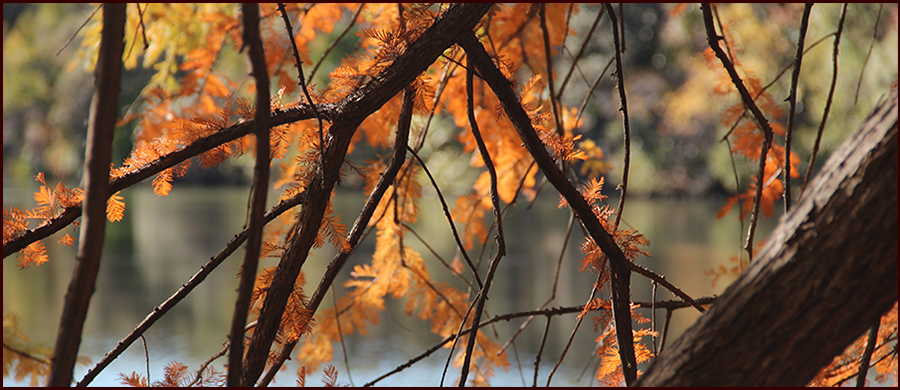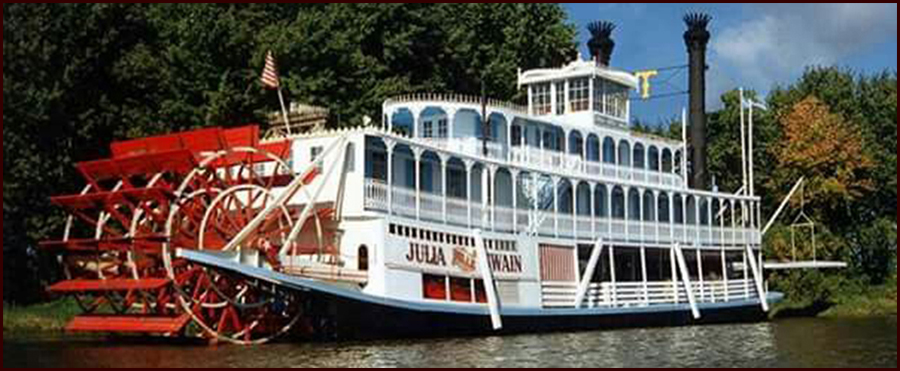The River Words & Music by Steve Gillette & Charles John Quarto
My dad's brother Bob gave me a ukulele when I was seven. I learned where to place my fingers from the chord diagrams in some of the songbooks I found in the piano bench. I gave my first performance for my fellow fifth graders with a two-chord song called "The Peanut Song." "Peanut sittin' on a railroad track, his heart was all a-flutter. Around the bend came the 5:15, toot toot, peanut butter." I was a folk singer before it was cool.
When the Kingston Trio came along, they changed the musical world for me much as the Beatles did for all of us a little later on. I was enchanted by the way they sounded, and by the way they seemed to have so much fun. A lot of that had to do with Dave Guard's humorous introductions to the songs. Even though the group seemed to be about entertainment, there was a worldliness in Guard's persona that I wanted to know more about.
I got to meet Dave a couple of years before he died. I told him what an influence his banter had been on so many of us. He modestly replied that he was 'only doing Lou Gottleib.' Lou, of course, was the bass player for the Limelighters who delivered their humorous introductions in a professorial tone. Lou would have admitted that he was strongly influenced by Michael Flanders of the British duo Flanders and Swann, who had a similar erudite and playful wit.
Tom Lehrer was also a strong presence in our house. It seemed our whole family enjoyed his humor, especially his gallows humor, and mother and child would spontaneously quote lines from many of his songs. The latest book of Charles Addams cartoons would be under the Christmas tree as Simon & Schuster released a new volume each year. Later on we had Nichols & May, Shelly Berman, Bob Newhart and Bill Cosby as they appeared. There was wisdom in all of it.
In those days we were moving on from the seeming innocence of the Eisenhower era into the tumultuous Kennedy years, and the emergence of the anti-war and civil rights movements. Peter, Paul and Mary released "Blowin' In the Wind" at a time when our generation was beginning to question the policies of the government. Without providing actual answers, the song resonated with that spirit of coming of age and empowered musical expression all over the country.
I was not yet prepared to embrace my left side, to integrate with a wider empathy with the dispossessed of the world; and so it was a while before I sought out the earlier voices of labor and the peace movement. When I did begin to come to consciousness, these musical voices were my mentors. Dave Guard had recommended Pete Seeger's book on how to play the five-string banjo, and that was my introduction to Pete. The Kingston Trio were my gateway drug to a healthier self-actualization.
When Dave Guard left the Trio, Nick and Bob took some months off, but then found John Stewart who became the banjo-playing third voice. Such a talented songwriter himself, John brought several of his own songs into the group. Eventually he brought them "Darcy Farrow," the song that Tom Campbell and I had written. For me that was a validation that exceeded any hopes that I may have had as an early fan of the group.
After John and Nick Reynolds had both passed on, Bob Shane, the only original member, put together a group with George Grove, Bill Zorn and Rick Dougherty, who toured as the Kingston Trio from 2005 to 2017. He joined them in collecting material for their 2012 CD, "Born at the Right Time," and they included the song that Charles John Quarto and I had written, called "That Song About the River."
By the time I met Charles John we had survived the Cuban missile crisis, the assassinations of many of our heroes and the disastrous Vietnam War. World-class villains in high places had been exorcised at least to the extent that we could comprehend in our naiveté. Today I would say, 'we hadn't seen nothin' yet.'
It wasn't as if we weren't trying to educate ourselves. Living as we were in the center of popular culture of that day, we were witnesses to the unfolding of the New Age, as well as the evolution of Rock and Roll. So many of us were desperate to take part, and to understand what it meant to be truly present.
In his 1951 book, "The Rebel: An Essay on Man in Revolt," Albert Camus wrote: "Real generosity toward the future lies in giving all to the present," He said, "no true revolution is achieved through destruction and nihilism; that the only way to change the world is through constructive and life-affirming action." There were books on the creative process, as well as meditation, and an expanding awareness of ways that our contemporaries were coping with political realities. Among those, I'm thinking of Rollo May's "Love and Will" where he wrote, "It is dangerous to know, but it is more dangerous not to know."
I had attended lectures by Krishnamurti, Alan Watts and others who were lifting the veil of illusion. The doors of perception had been blown wide open and there was a sense of being able to communicate some of those ideas in the contemporary media, although most of what received any play at all was pretty tepid. John Lennon had warned about taking a step too far in his song, "Revolution" "We all want to change the world / But when you talk about destruction / Don't you know that you can count me out."
Transcendental Meditation was a topic with a mixed reception. The Maharishi Mahesh Yogi had established study centers worldwide and was teaching a pretty accessible version of Vedic discipline. George Harrison and his wife Pattie Boyd urged their friends to attend the Maharishi's lecture at the Hilton on Park Lane in London when he spoke there in August of 1967. The band members went to study with the Maharishi in Bangor, Wales, before traveling to Rishikesh, India, in February 1968 to "devote themselves fully to his instruction." It was later insinuated in the press that the Maharishi had made inappropriate advances towards Mia Farrow, but this was vehemently denied by the Beatles. Paul took his daughter, Stella, to visit the Maharishi in the Netherlands in 2007.
In workshops I talk about what I call a 'transcendent vision.' By that I mean that the listener will follow the singer into difficult territory if there is trust that the story teller can be relied on to carry them through. Charles has often said that it's important to 'see beyond' the current struggle. Each of these ideas has a voice in our song.
There is such a thing as being too hip for the room, as comedians used to say. Dylan Thomas toured the US speaking to groups of poetry lovers, but lamented having to explain to them about the sad death of a movement of poetry that none of them knew had been born.
We had written a few songs by the time we took on the song about the river. As much as we wished to say something profound, and we did make that effort in other songs, it seemed that the best approach was to come right down the middle with good imagery and observations that were consistent with a sense of appreciation of nature and maybe a little nostalgia. We saw the song as an expression of the power and transcendence of nature. Many of the poetic phrases are from Charles' pen. "I go reaching for the river, like it's reaching for the sea," and "the wind may brush the water, but the river holds her sway."
Musically the challenge was to support that tone of reverie and spiritual contemplation. For the bridge we move up into the territory of the key based on the fourth scale degree as many choruses and bridges do. But rather than circle back to the original key, in my version we stay in that new key and sing the chorus again in the higher range. This is something that others have declined to attempt so that in the examples from The Kingston Trio and from Don Williams, they have found ways to bring the range under control. Some experiments don't always make it into other people's versions of the song, but thankfully this hasn't kept them from singing it.
Cindy and I traveled on the Julia Belle Swain when our friend Art Thieme was the entertainment and guide. As we came up to a series of locks on the Mississippi, he pointed them out saying that "there are birds that seek out the special moss found along this stretch of the river, we call them the 'lock moss nesters.'"
Here's a YouTube video (audio only) with the Kingston Trio singing "That Song About the River."
The Kingston Trio recording of "That Song About the River"
The song had already been recorded by several other artists as well, and of these we were especially proud of Don Williams' beautiful rendition. (also audio only)
Don Williams recording of "That Song About the River"
Cindy and I sang "The River" at the Minstrel Coffeehouse in New Jersey several years ago.
Steve & Cindy performing "The River" at the Minstrel Coffeehouse
Here's a YouTube video I made of the song using the recording of Cindy and me at the Ark in Ann Arbor, Michigan from our CD, "Live In Concert." I couldn't resist using the intro from our Nashville recording of the song from the CD "The Ways of the World."
Steve & Cindy performing "The River"; video by Steve
You can find the studio recording on Steve's album "The Ways of the World," available on CD or MP3 album here and the live version, also available in both formats, on Steve & Cindy's album, "Live in Concert," here.
The songbook with the sheet music for "The River" and 46 other songs is available here.
And here are the lyrics the way we sing it.
I've seen the paddlewheelers rollin' south on a summer's day. I've seen lovers at the guardrail with stars in their lemonade. And I've heard the hobos gathered, heard their banjos grace the glade Heard them sing about the river, called it the lazy man's parade. Sing me that song about the river green, goin' away. You know I always did feel like a drifter 'bout this time of day. Last night I stood by the highway, pretending I was on my way You know a hundred thousand headlights couldn't match the milky way. And when the moonlight touches the water, surely something touches me, And I go reaching for the river, like it's reaching for the sea. Sing me that song about the river green, goin' away. You know I always did feel like a drifter 'bout this time of day. Some things go on forever, the truth don't ever stray, the wind may brush the water but the river holds her sway. Sing me that song about the river green, goin' away. You know I always did feel like a drifter 'bout this time of day.
© 1990, Foreshadow Songs, BMI


